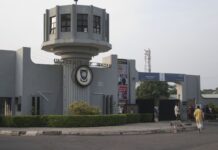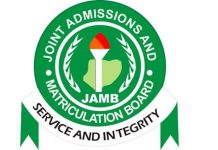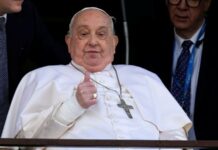The Supreme Court has fixed Wednesday, October 30, to hear the appeal filed by the candidate of the Peoples Democratic Party (PDP) in the February 23 presidential election, Mr. Atiku Abubakar, challenging the September 11, 2019 judgment of the Justice Mohammed Garba-led Presidential Election Petitions Tribunal which upheld the election of President Muhammadu Buhari.
The PDP which confirmed the date via @OfficialPDPNig and @atiku / @PeterObi tweeted: “The tweet reads, “Breaking News! The Supreme Court of Nigeria has scheduled to hear the Appeal of the @OfficialPDPNig and @atiku / @PeterObi, arising from the judgment of the Appeal Court, on Wednesday, October 30, 2019. It’s time to #RescueNigeria.”
Similarly, legal representatives of PDP/Atiku on the one hand and Buhari/All Progressives Congress (APC), on the other confirmed the development.
Counsel for Atiku/PDP, Mr. Chris Uche said he was informed by the registry of the court.
“Yes, we were notified through a text message from the registry of the Supreme Court this morning (Sunday) that the appeals would be coming up for hearing on Wednesday.
“He said he expected that there would be a formal service of the hearing notice,” he said.
One of the senior lawyers in the Buhari’s legal team, Dr. Alex Izinyon (SAN), also confirmed the Wednesday’s scheduled hearing.
“Yes, I can confirm that the hearing comes up on Wednesday. We have received hearing notices in respect of the five to six appeals scheduled for hearing.
“Four of the appeals are interlocutory appeal. There is also an appeal challenging the main judgment,” he said.
Similarly, the court’s spokesman, Dr Festus Akande, confirmed the Wednesday hearing date.
However, the Chief Justice of Nigeria (CJN), Justice Tanko Muhammad was yet to publish names of the judges who will judge the case.
Nevertheless, it is believed that the Supreme Court would not deviate from the norms of nominating the most senior justices into the panel.
In the order of seniority, those, who might make the panel are the Chief Justice of Nigeria (CJN), Tanko Muhammad, Justices Bode Rhodes-Vivour, Mary Odili, Musa Datijo, Sylvester Ngwuta, Kayode Ariwoola and Kudirat Kekere-Ekun.
The Atiku/PDP appeal is predicated on 66 grounds in which they urged the apex court to set aside the decision of the tribunal in its entirety on grounds that it erred in reaching the conclusion that the petitioners failed to prove their case against the respondents.
They hinged their case on grounds that Buhari lied on oath in his form CF001 submitted to INEC to aid his clearance for the presidential election.
They also alleged irregularities and substantial non-compliance with the Electoral Act and guidelines during the poll.
Respondents in the petition include the Independent National Electoral Commission (INEC), Buhari and the All Progressives Congress (APC).
In the appeal filed against the upholding of Buhari’s election by the tribunal, the appellants while claiming that the panel erred in law by holding that Buhari was eminently qualified to contest the poll, accused the panel of descending into the arena to defend the cause of Buhari in the petition.
They accused the justices of the tribunal of making use of evidence never pleaded/led at the trial by any of the respondents and sometimes credited statements to the respondents’ witnesses, which were never made.
For example, they submitted: “There was no evidence at the trial that schooling at the Military Training School was “higher than Secondary School Certificate education.
“The second respondent or any of the respondents for that matter did not lead evidence on the meaning of “officer cadet.
“The second respondent neither claimed nor led evidence that the second respondent was eminently qualified to contest.
“Contrary to the testimony of RW1 regarding the submission of his certificates to the Army, the lower court inferred that the second respondent “in fact submitted his certificates to the military.”
The appellants further argued that INEC did not lead evidence wherein it informed the court that it was satisfied with the qualification of Buhari.
Also, Buhari according to them throughout the trial did not lead any evidence to show that he successfully went through primary school, secondary school and famous military college(s) in the USA, UK and or India, whereas the lower court assumed he did.
Atiku and PDP also canvassed the argument that the tribunal justices erred in law when they relied on “overall interest of justice” to hold that Buhari’s documents were properly admitted in evidence.
According to Atiku and PDP, the said documents, which bordered around his certificates were not pleaded and were not frontloaded.
On the tribunal’s decision that Buhari does not need to attach his certificate to his Form CF 001, the appellants submitted that the tribunal gave restrictive interpretation to Section 76 of the Electoral Act 2010 (as amended) in order to exclude Form CF001 from its provisions.
The appellants said: “The conduct of election by the first respondent starts with the screening of candidates, they said “No candidate can be screened unless he completes Form CF001 (Exhibit P1).
“In Form CF001, under the column for “Schools Attended/Educational Qualification with dates”, there is the clear provision: “ATTACH EVIDENCE OF ALL EDUCATIONAL QUALIFICATIONS.”
“Certificates are evidence of educational qualifications.
“The lower court held that Buhari passed with credits in English Language, Geography, History, Health Science, Hausa and a pass in English Literature in 1961 by inference when there was no evidence throughout the trial and indeed no evidence from the school principal to the effect that the second respondent wrote or actually passed those subjects.”
In further faulting the decision of the tribunal, Atiku and PDP argued that the lower court failed to appreciate that INEC, which is a party to the petition never said that it was satisfied with the educational qualification of Buhari.
“There can be no presumption that the first respondent duly cleared the second respondent to contest the election in the face of the provision of Section 31(1) of the Electoral Act, 2010 (as amended).
“By the force of the provision in this section, it is no longer within the discretion of the commission (first respondent) to clear or not to clear any candidate presented by a political party.
“Whether or not the second respondent was cleared by the first respondent is a matter of evidence,” they said.
They are, therefore, asking the apex court to allow the appeal because the judgment of the Court of Appeal is against the weight of evidence.
In addition, they prayed the Supreme Court to set aside the judgment of the Court of Appeal, delivered on September 11, 2019 in petition NO: CA/PEPC/002/2019.
They also prayed the court to grant all the reliefs sought in the petition and declare them winner of the February 23 presidential poll or in the alternative annul the victory of Buhari and order for a fresh election.
With Punch, ThisDay reports




















































